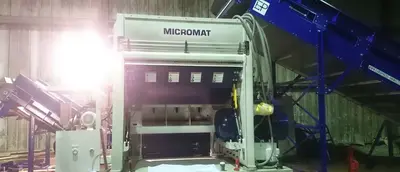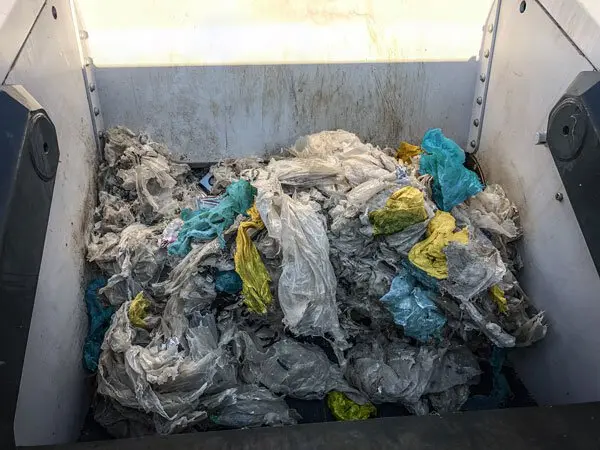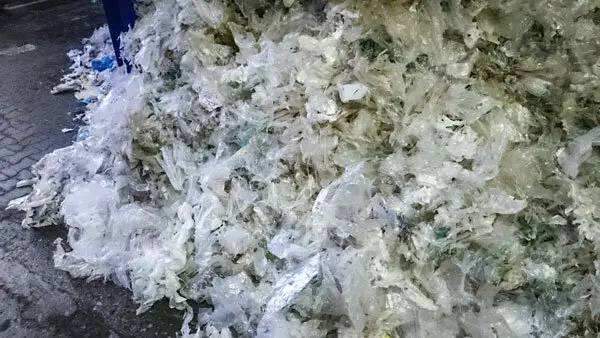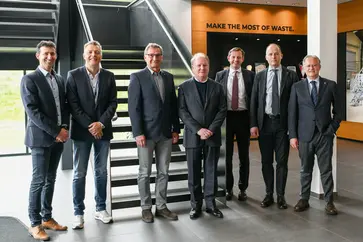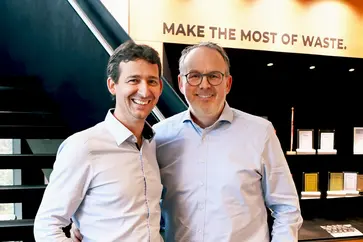At the Morschheim site in Germany, Veolia Umweltservice West GmbH operates a highly efficient sorting facility for post-consumer plastic films. Crucial to ensuring the best possible output quality in homogenous LDPE film is a Lindner-Recyclingtech Micromat 2000 BW shredder. This innovative machine also regulates the quantity of material and creates the perfect conditions for optical sorting by feeding the optical sorting system with the particles it needs.
Veolia Environnement has made it its business to handle resources responsibly. The French environmental solution specialist is now expanding its manifold activities in particular in the field of plastics recycling – a key issue for the future. In November 2017 the company took over Just Kunststoffe GmbH in Morschheim, Rhineland-Palatinate, Germany: The group subsidiary Veolia Umweltservice West GmbH acquired a state-of-the-art pre-treatment and sorting facility for plastic film, which was upgraded to the latest technology at the beginning of last year.
According to the Veolia Group’s growth plans for 2017, annual sales in the plastics recycling segment are expected to increase fivefold – from around €200 million to approximately €1 billion. There is a spirit of optimism and willingness to invest in the circular economy. According to market observers, the industry in general is booming and it is receiving additional impetus from the EU’s circular economy package and plastic strategy. For example, there is a need to stop discharging plastic into the environment, stop landfilling or simply incinerating recyclable plastics and create more recycling opportunities instead. EU Commission Vice-President Frans Timmermanns warns that in 2050 there could be more plastic particles than fish in the world’s oceans, pointing to the catastrophic consequences for the ecosystem if action is not finally taken. As consumption and waste volumes are expected to increase, more processing capacity will be needed for post-consumer plastics.
